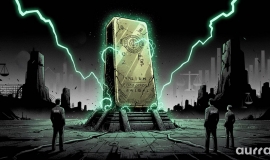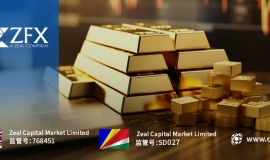Register now, make more friends, enjoy more functions, and let you play in the community easily.
You need Sign in Can be downloaded or viewed without an account?Register Now 
x
2012From the end of the year to2013At the beginning of the year, investors around the world focused their attention on the long dormant Japanese stock and currency markets. The newly appointed Japanese Prime Minister had already made "Abe Trading" the most popular investment trading strategy at that time before the public could feel economic growth. The elites on Wall Street will naturally not miss this opportunity and join the ranks of short selling the yen and long selling the Japanese stock market. But facing the same wave of market trends, only truly top-notch experts can fully enjoy this feast, and this person is the famous George Soros.
Data shows that Soros' famous quantum fund was managing200With assets worth over billions of dollars2013Annual net profit55Billion US dollars, once again becoming the most profitable hedge fund. And among them, there are10The $100 million gain comes from its strategy of shorting the yen in the first two months of last year.
Facing a wave10%The unilateral market trend that ordinary people may think of is to directly sell100To exchange one billion yen for US dollars, although it can earn10Billion, but there may also be risks10One hundred million; New investors may have thought of itfutures, using approximately10You can make a profit by using one billion yuan as a deposit10Billion, but the risk is still significant; When you learn to buy virtual value with a small amount of fundsoptionBy then, you have learned about risk management and are further away from being a master.
And in fact, the most surprising thing is that Soros' team only utilized approximately3000Ten thousand US dollars, equivalent to a doubling of funds30Times! What it really buys is a large number of reverse knockout options with different strike prices that are cheaper than imaginary options (i.e. options that only make money when the yen drops significantly, but will be invalidated when it falls below a certain level). Even if all of these options are lost, it doesn't matter, and once some of them are done correctly, they will bring considerable returns. Of course, this requires a more accurate grasp of the final price trend.
This is like the World Cup lottery group stage "ItalyVSUruguay. Ordinary people only guessed correctly that Uruguay had a cold victory. It was easy to guess correctly, but to make big money, a large amount of money was needed; Experts not only guess the outcome, but also the goal difference; Soros, on the other hand, is equivalent to spending a small amount of money directly guessing the score. Although it is more difficult, he can buy several more results (and even bet on Su Ya's relapse on the field). Once one of the results is guessed correctly, he can achieve high returns, but the biggest benefit is that the investment and risk taken are greatly reduced.
The inspiration from the above story is that options are not gambling tools, they are essentially premium insurance. Many people always use lottery tickets as a metaphor for options, but the above story shows us that true experts do not make money by playing wild guesses and gambling. Instead, they discover a potential investment opportunity through thorough fundamental research and analysis, and consider how to choose the most powerful tool and achieve their goals with the minimum cost. Here, the powerful tool is options. The high leverage nature of options can allow experts to save more funds and engage in more meaningful strategies.
So using lottery as a metaphor for options is not very appropriate. The most appropriate metaphor for options is a type of advanced insurance, which is mainly manifested in: firstly, we can not only buy options, but also act as sellers like insurance companies (as we all know, insurance companies are easier to make money than policyholders). Of course, we must be able to bear the corresponding risks, that is, we need to pay the margin for put options; Secondly, ordinary insurance can only be purchased and held until maturity, while options can be held at any timeT+0Trading, the price of which also changes in real time, in fact, the vast majority of option investors will not hold until maturity; Finally, ordinary insurance often only covers risks in the "bad" direction, while option insurance risks can be not only "downward" risks, but also "upward" risks, which can bring more changes to our investment portfolio.
So, in order to make good use of options, one can search for trends or risks that have been overlooked by the market but are "very likely" to occur. A more detailed analysis of market indices or individual stock trends is needed, rather than simply analyzing whether they will rise. Having the option as a high-end weapon and fully utilizing its "insurance" attribute will give our investment process wings and opportunities.
(Source: China Securities News) |
"Small gifts, come to Huiyi to support me"
No one has offered a reward yet. Give me some support
|


